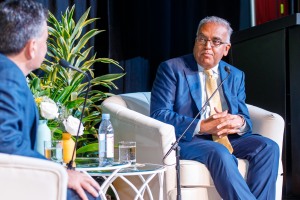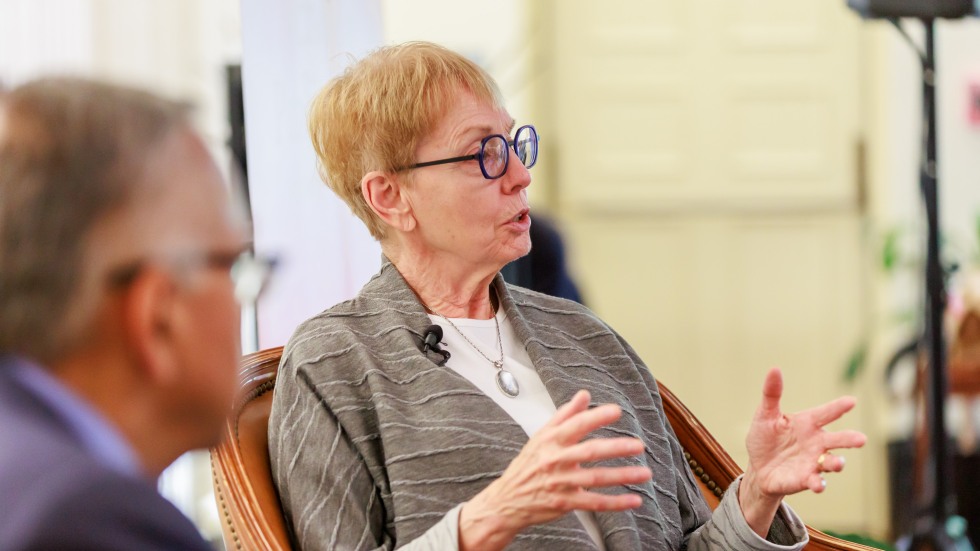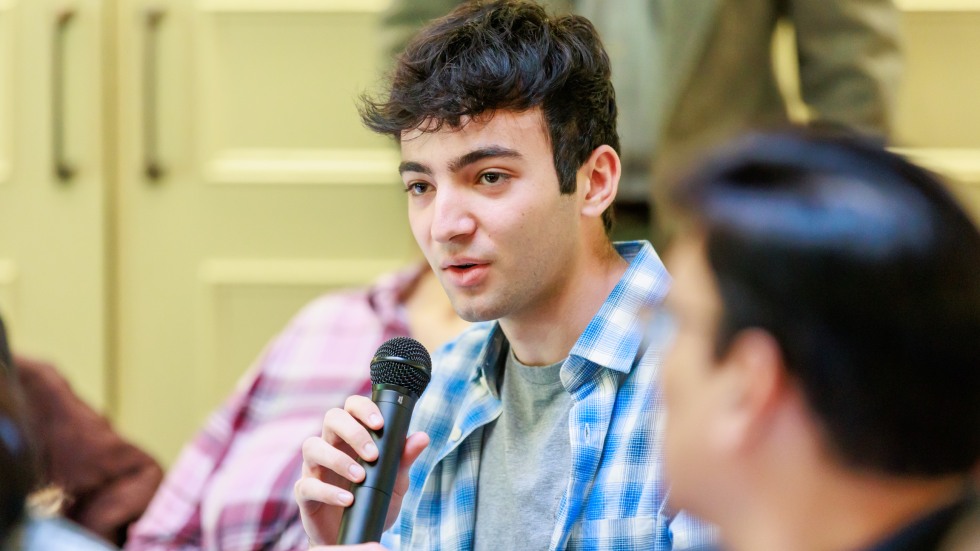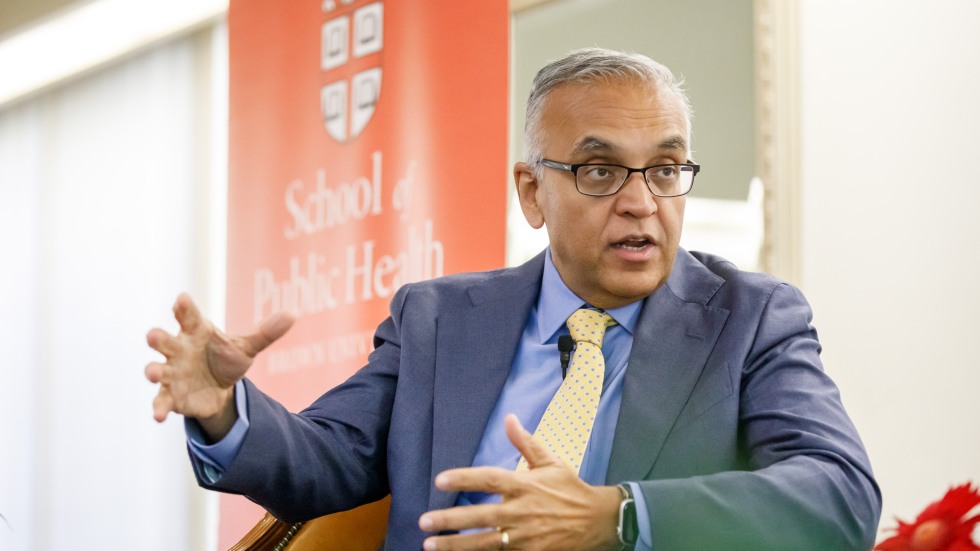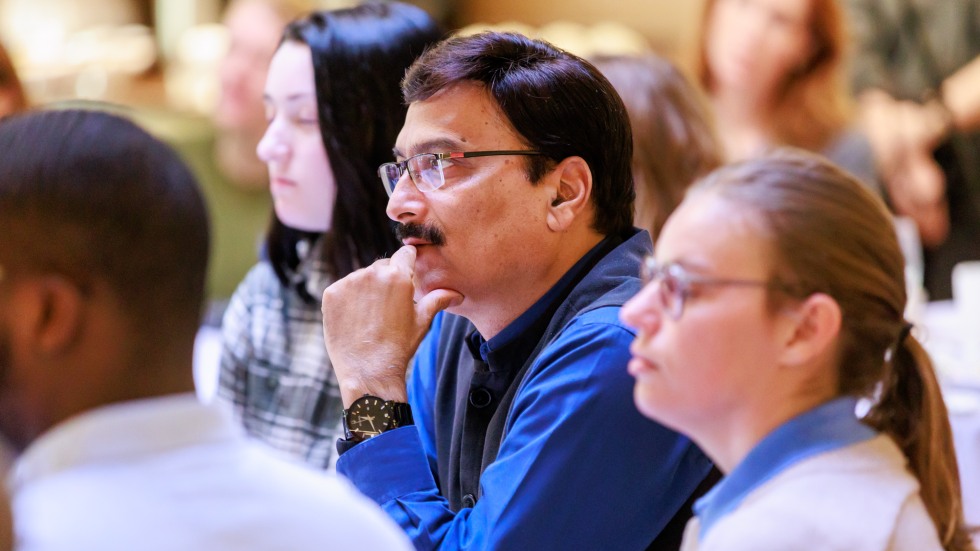On November 20th, the Brown University School of Public hosted the academic year’s first installment of the Dean’s Conversation Series, featuring Kristie L. Ebi, Ph.D., MPH from the University of Washington’s School of Public Health. Ebi joined Dean Ashish K. Jha to discuss her long experience in public health, her view of the current health challenges posed by climate change and strategies for mitigation.
“We had two goals for this session: Focus on climate and health, and speak with an extraordinary guest,” Dean Jha said during his opening remarks. “We achieved both with this session.”
Ebi, a professor at the Center for Health and the Global Environment (CHanGE) at the University of Washington, has spent over 30 years investigating the health risks associated with climate variability. She has collaborated with countries in Africa, Central America, Europe, Asia and the Pacific to assess their vulnerability to climate change and implement adaptation measures. She also served as lead author for the Intergovernmental Panel on Climate Change’s (IPCC) 6th Assessment Report, including a special report on Global Warming of 1.5°C.
To the crowd gathered at Brown’s Faculty Club, Ebi described her early work at the Electric Power Research Institute in the 1990s. She explained that climate and health was a niche topic at the time, addressed by a small and close-knit community. A colleague of hers joked that everyone working on the subject could fit into a phone booth.
